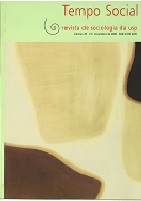Is freedom the child of knowledge?
DOI:
https://doi.org/10.1590/S0103-20702008000200011Keywords:
Knowledge, Power, Expertise, Civil Society, Knowledge Society, DemocracyAbstract
The theme explored in this paper concerns the multiple linkages between knowledge, civil society, governance and democracy. I could place this general set of questions within the context of whether or not they are co-determined by the enabling knowledgeability of modern actors and stress the growing possibilities for reflexive cooperation among civil society organizations and social movements, as well as the increasing influence of broad sectors of society in democratic regimes. However my specific objective is necessarily more modest. Access to knowledge and its control are stratified. I shall explore three barriers and hurdles to the access to knowledge and ask: (1) can expertise and civil society be reconciled? (2) is it conceivable to reconcile civil society and knowledge as a form of private property? (3) and finally, are the social sciences and humanities a source for enabling knowledge?Downloads
References
BARRO, Robert. (1999), “The determinants of democracy”. Journal of Political Economy, 107: S158-S183.
BOHMAN, James. (1999), “Citizenship and norms of publicity: wide public reason in cosmopolitan societies”. Political Theory, 27: 176-202.
GALLIE, W. B. (1955-1956), “Essentially contested concepts”. Proceedings of the Aristotelian Society New Series, 56: 167-198.
GROVE, Michael. (2003), “Why I fear today’s brave new world”. The Times, 16 maio.
HARDIN, Russell J. (2003), “If it rained knowledge”. Philosophy of the Social Sciences, 33: 3-24.
IRWIN, Alan. (1999), “Science and citizenship”. In: SCANLON, Eileen et al. (eds.), Communicating science: contexts and channels. 1ª edição 1995. Reader 2. Londres, Routledge.
JONES, Gareth Stedman. (2004), An end to poverty? A historical debate. Nova York, Columbia University Press.
LEIGHNINGER, Matt. (2006), The next form of democracy: how expert rule is giving way to shared governance and why politics will vever be the same. Nashville, Tennessee, Vanderbilt University Press.
PIELKE, Roger A., Jr. (2007), The honest proker: making sense of science in policy and politics. Cambridge, Cambridge University Press.
SCHUTZ, Alfred. (1946), “The well-informed citizen”. Social Research, 13: 463-478.
SHAPIRO, Susan. (1987), “The social control of personal trust”. American Journal of Sociology, 93: 623-658.
STEHR, Nico. (2005), Knowledge politics: governing the consequences of science and technology. Boulder, Colorado, Paradigm Publishers.
WALLERSTEIN, Immanuel. (2004), The uncertainties of knowledge. Philadelphia, Pennsylvania, Temple University Press.
Downloads
Published
Issue
Section
License
Copyright (c) 2015 Tempo Social

This work is licensed under a Creative Commons Attribution-NonCommercial 4.0 International License.


